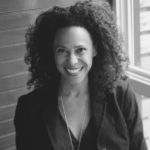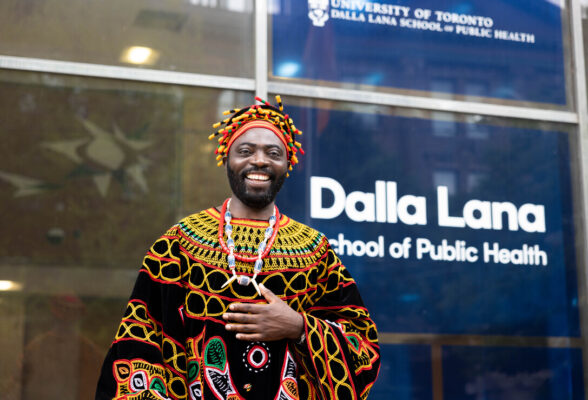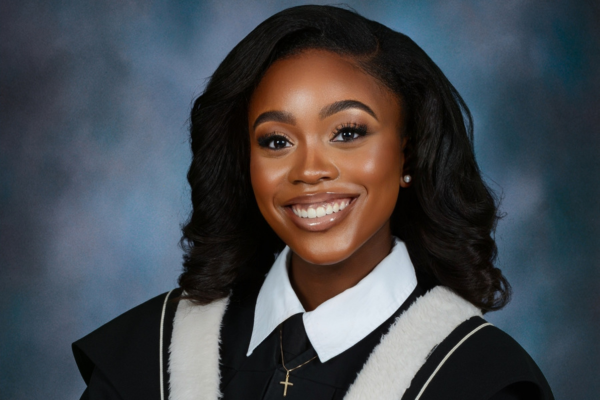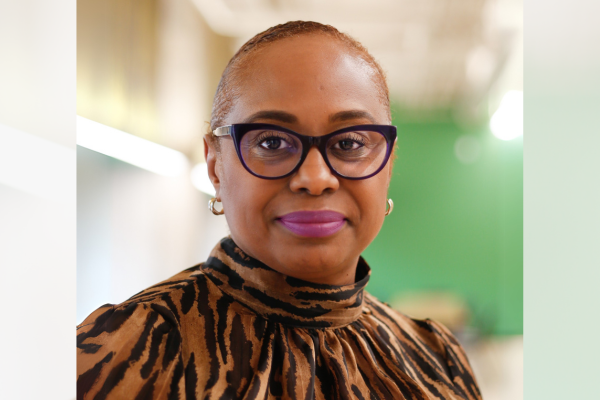Black Research Network introduces its inaugural Black Indigenous Waterways recipients

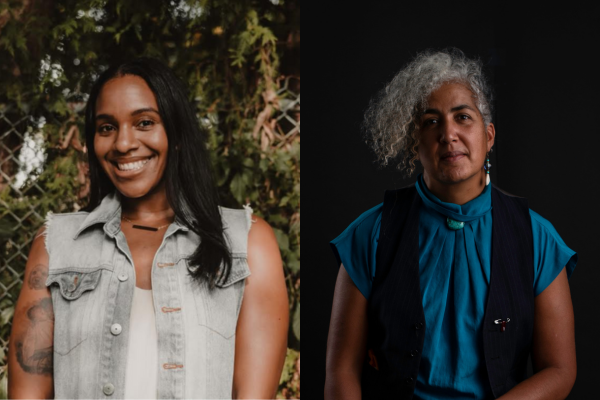
The Black Research Network (BRN) is pleased to announce the inaugural recipients of its Black Indigenous Waterways Postdoctoral Fellowship and Artist in Residence (AiR) roles.
Jade Nixon, a PhD candidate at the University of Toronto’s Women Gender Studies Institute, has been named the Black Indigenous Waterways Postdoctoral Fellow. kara lynch, a New York-based artist and associate professor emerita of video and critical studies at Hampshire College, has joined the BRN as its AiR.
The new research initiative explores the relationships forged between Black and Indigenous peoples through historical encounters across the Americas, focusing on avenues such as place, identity, and environmental justice. Developed by the BRN, the opportunity is led alongside the Indigenous Research Network (IRN), an Institutional Strategic Initiative set to deepen Indigenous research at the University of Toronto.
The initiative addresses the critical need to establish frameworks to further Black and Indigenous history in academic institutions and demonstrate the shared history of both communities in Canada, which, until now, have been largely taught separately.
Nixon and lynch have participated in pedagogical observation of a new undergraduate course titled “Black Indigenous Waterways” taught by Beth Coleman, an associate professor at University of Toronto Mississauga’s Institute of Communication, Culture, Information and Technology (ICCIT) this winter. The course was made possible by a $10,000 U of T Global Classrooms grant awarded to the BRN. The team will also contribute to a $5 million, multi-institutional Mellon Foundation grant writing team under the guidance of Coleman and Kristen Bos, an assistant professor in the department of historical studies and a member of the IRN.
Learn more about the Black Indigenous Waterways recipients.
Jade Nixon
The inspiration behind Nixon’s work is closely aligned with her experience of staying connected to the Caribbean region, where both her parents are from.
A postdoctoral candidate at the Women and Gender Studies Institute (WGSI),Nixon’s research centers Black women’s theories of gathering, place-making, and their relations with the Atlantic Ocean.
Her dedication to understanding waterways in the context of Black and Indigenous perspectives is what made the BRN opportunity feel like a perfect fit.

“Being born in this place called Canada means I’m away from the lands and waters of the Caribbean and it is the traditional lands and waters of the Haudenosaunee and the Anishinaabe that have held me in the meantime. I feel deeply connected and accountable to them. So, it felt like this postdoc opportunity was made for me,” Nixon says.
For her research project, Nixon will foreground Indigenous histories in Martinique, an island in the Lesser Antilles of the West Indies. She will travel to the island this fall to learn more about the histories of the Arawak Caribs, two Indigenous groups that were the original caretakers of the land.
While the project will foster collaborations with a network of Black and Indigenous scholars in Martinique and Canada, it will also emphasize unique partnerships. Nixon will visit with people who have expertise of the history on the island to learn more about Indigenous life and presence on island.
“What excites me the most is to be able to commune with these lands and waters and talk with people who have in depth knowledge of the Indigenous history of Martinique. I will be able to turn to the people who have lived and place-based expertise that I can learn from and who have the desire to share what they know with me.”
The project builds on Nixon’s dissertation, which focuses on the relationship that Black women have to a Caribbean Carnival-related gathering onboard a ship in the Atlantic called the Ubersoca Cruise.
Stemming from her experience on the Ubersoca Cruise ship, Nixon highlights how Black women seek out this deeply Caribbean place curated on a ship on the Atlantic Ocean to feel closer to the waters, to one another, and to themselves.
Drawing parallels between research and personal stories is an approach that was also emphasized during the “Black Indigenous Waterways” course to encourage students to make connections across Black and Indigenous histories and lands.
“Students were making connections to their own lived experiences, cultural histories and homelands, and thinking alongside and in relation to Black and Indigenous waterways and histories. It was powerful and it was meaningful work,” Nixon says.
kara lynch
For lynch, taking on the AiR role offers an opportunity to help shape what the artist calls a “liberation curriculum.”
Vital to this is lynch’s dedication to establishing interdisciplinary collaborations with researchers, artists, and activists to visualize course material and make resources accessible – within and beyond the university.
“As an artist, there is an opportunity to think about how to push boundaries and broaden resources to maximize our learning potential,” lynch says.
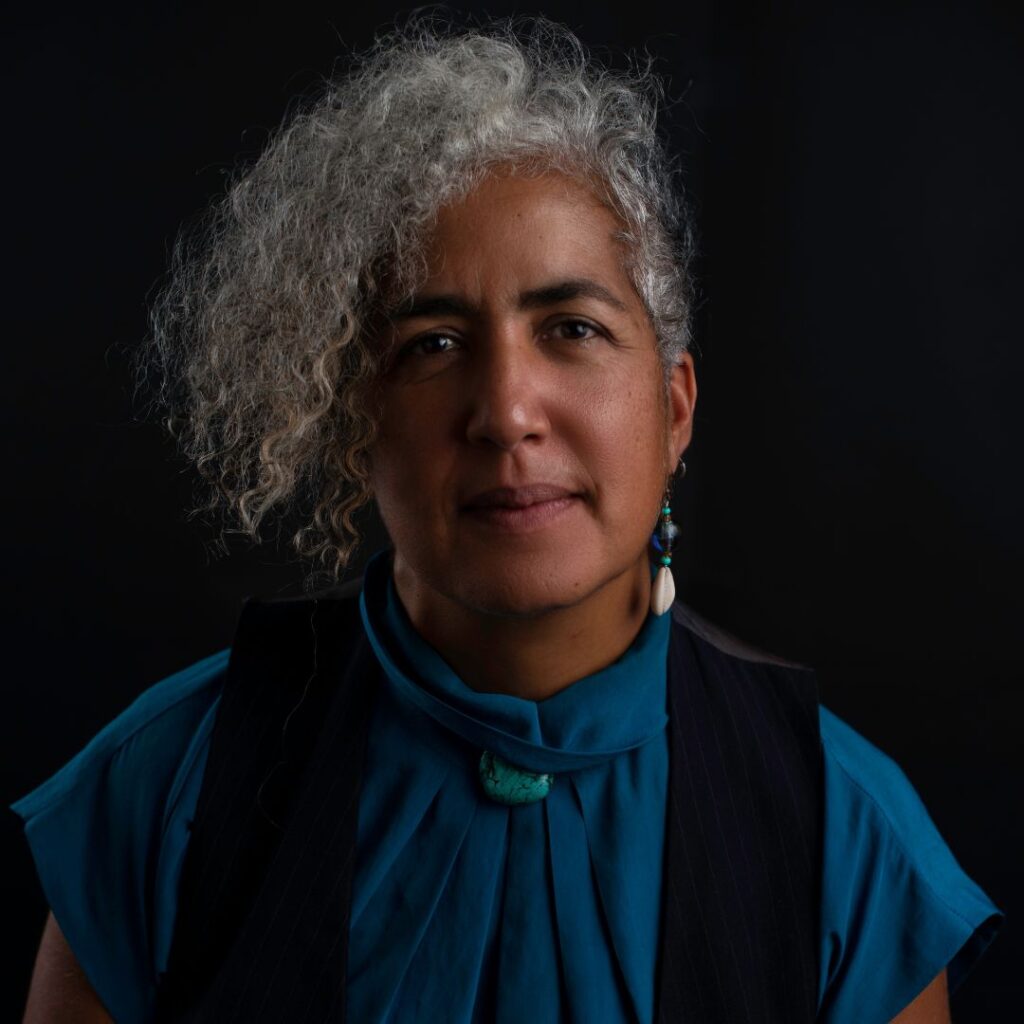
“After seeing what gets unearthed when students are open to approaching material in an interdisciplinary way, our proposal to students is to consider how to visualize data and information. That shift is what is necessary in a liberation curriculum.”
A time-based artist, lynch’s work considers autonomy for Black and Indigenous communities, specifically through re-memory, vision, and movement. Through various collaborations and solo works, lynch has fostered conversations about these shared histories, mainly in the United States.
Until now, those conversations have largely been hosted outside of academic institutions.
“There is a legacy of solidarity in the U.S. in terms of Black and Native American Studies and how it comes into the academy through activism,” lynch says. “Our histories are not separate politically, but in terms of research, there are ways that we are separated, despite our shared histories and legacies – and that can be powerful together.”
Joining last semester’s “Black Indigenous Waterways” classes virtually, lynch encouraged students to push boundaries and think beyond the classroom when approaching research. The philosophy is part of the course’s foundation. For example, in one of their early classes, students presented a sentimental object to the group, meant to open a wider conversation about place, belonging, and politics.
lynch will now focus on mapping Black and Indigenous futures as they relate to climate justice and relationships to both waterways and land. Key research questions will address abolition, decolonization, co-resistance, and healing, to name a few. In addition to this work, she will travel to Toronto in the fall for a public presentation about the initiative.
“This project is a mapping and re-mapping of our stories, looking at a historical context and into the future. A huge part of this is paying attention to our relationships with each other, water, and the land,” lynch says.



